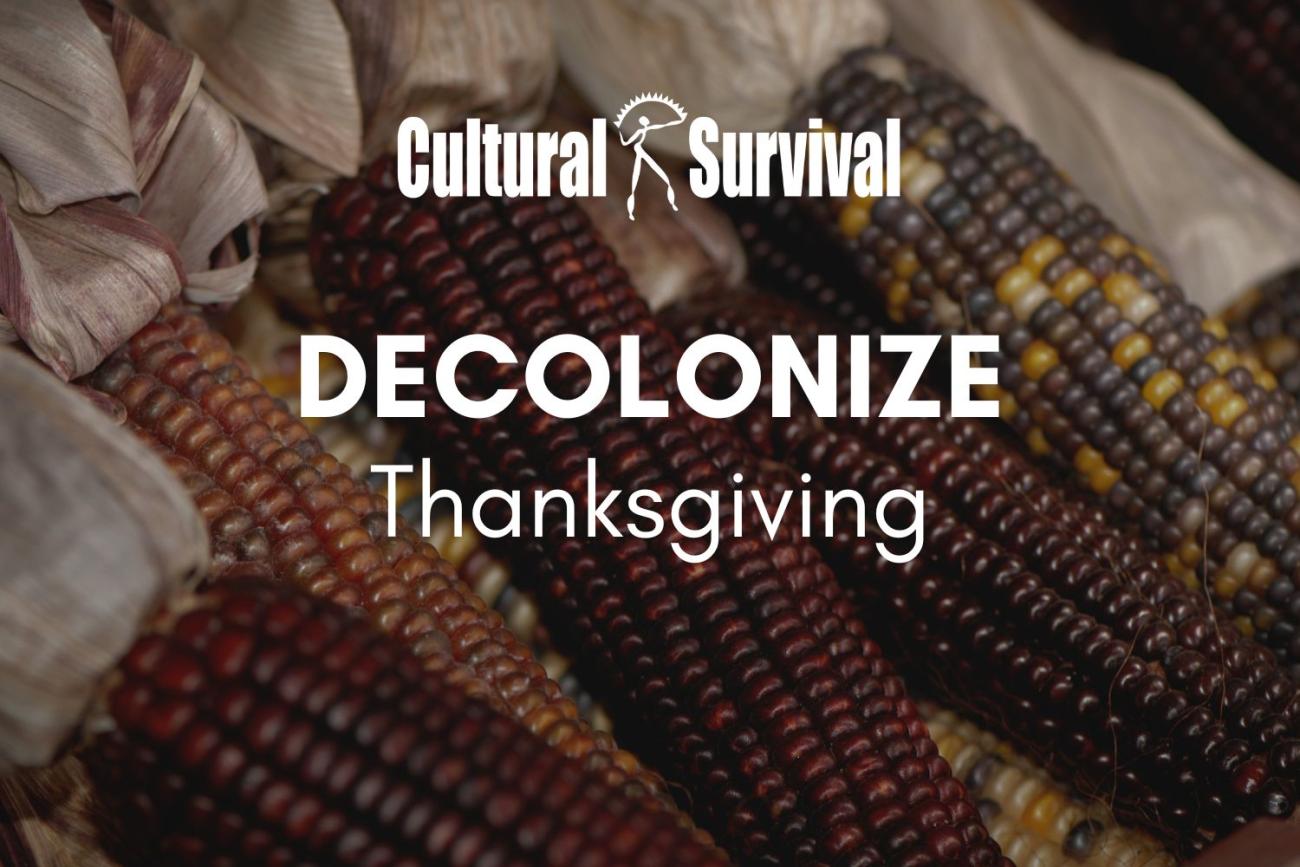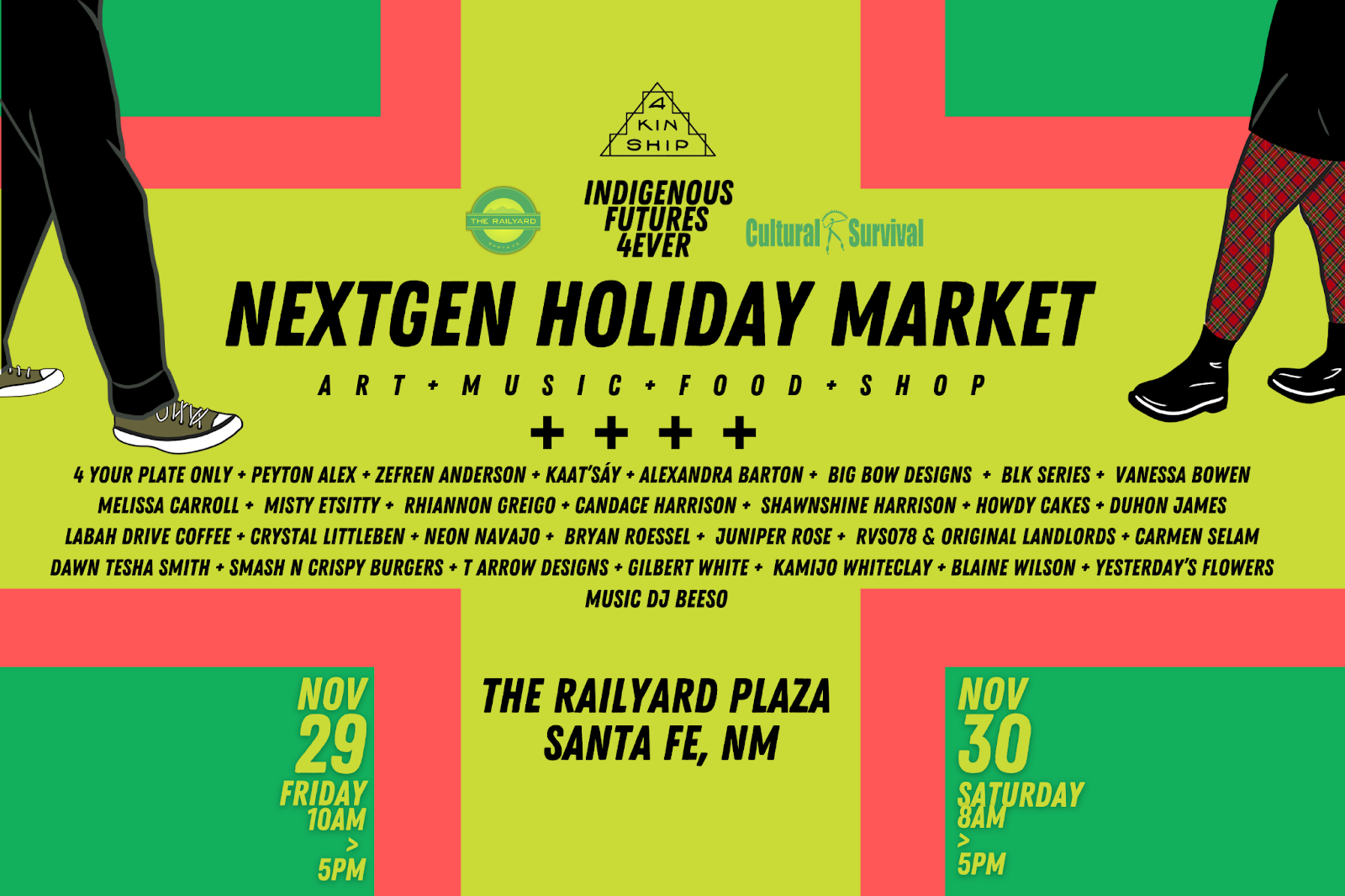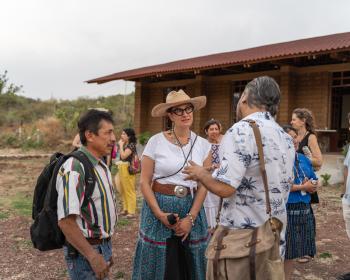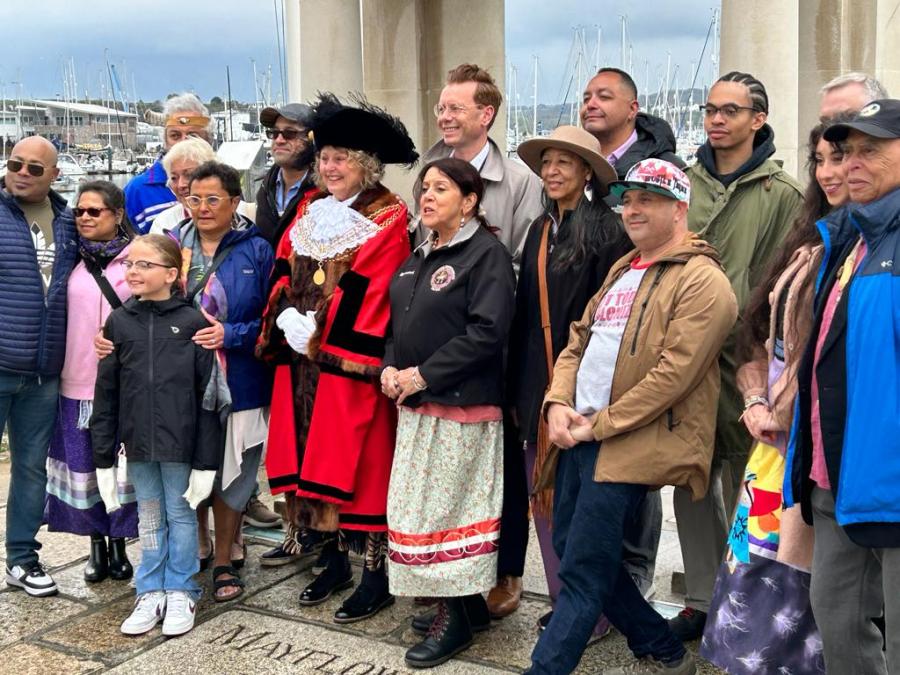
11 Ways to Relearn Thanksgiving and to Honor Native Peoples
With Native American Heritage Month well underway and Thanksgiving/National Day of Mourning occurring tomorrow, it is an excellent time to celebrate Indigenous Peoples’ brilliance, honor and acknowledge truth in history, recognize whose land we are on, and work towards true allyship. We call upon our Cultural Survival community to learn from Indigenous Peoples and their true account of this federal holiday, confront settler mythologies of this country's history, understand how American colonialism and imperialism continue to impact Indigenous communities today, and to take steps towards true reconciliation. Explore the many ways to honor and celebrate Indigenous Peoples every day.
1. Learn the Real History of Thanksgiving.
Read and share these articles!
- Thanksgiving Is A Day of Mourning for Many Indigenous Communities by Kisha James (Aquinnah Wampanoag and Oglala Lakota) and Mahtowin Munro (Oglala Lakota)
- What you learned about the ‘first Thanksgiving’ likely isn’t true. Here’s the real story
- Wabanaki Sustenance and Self-Determination
- The First Thanksgiving: Separating Myth From Fact by Ruth Hopkins (Dakota and Lakota)
- Our Ancestors Celebrated Thanksgiving 13 Times a Year: Demystifying Thanksgiving by Chenae Bullock (Shinnecock)
- Decolonizing Thanksgiving and Reviving Indigenous Relationships to Food by NDN Collective
- Decolonizing Thanksgiving and The Real Thanksgiving Indigeneity Curriculum by Bioneers
- The Thanksgiving Tale We Tell Is a Harmful Lie. As a Native American, I’ve Found a Better Way to Celebrate the Holiday by Sean Sherman, the ‘Sioux Chef’
- The Wampanoag Side of the First Thanksgiving Story
- Pilgrim myths: Don’t believe everything your kindergarten teacher told you
- The True, Indigenous History of Thanksgiving by Alexis Bunten
- Thanksgiving Promotes Whitewashed History, So I Organized Truthsgiving Instead
- Decolonizing Thanksgiving: A Toolkit for Combating Racism in Schools
For Kids:
- 6 Books to Share with Your Young Ones Exploring the Meaning of Thanksgiving from Native Perspectives
- Plimoth Thanksgiving
- 7 Thanksgiving books for kids written from the Native perspective
- How to talk to little kids about Thanksgiving, explained by a Native American children's author
|
|
|
|
|
|
|
|
|
|
|
|
|
|
|
|
|
|
|
|
|
|
|
|
|


















